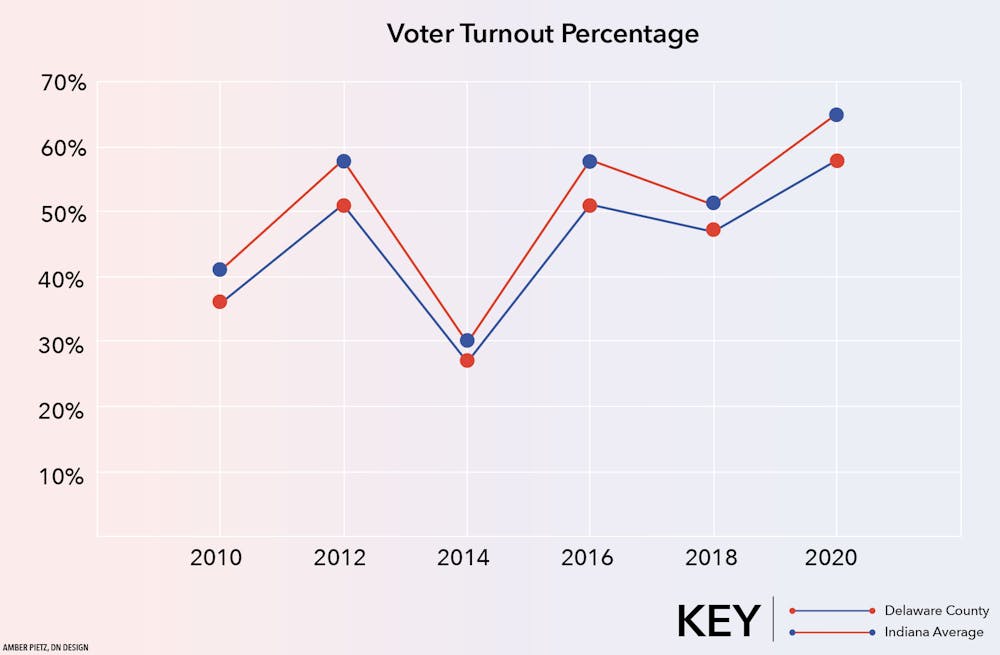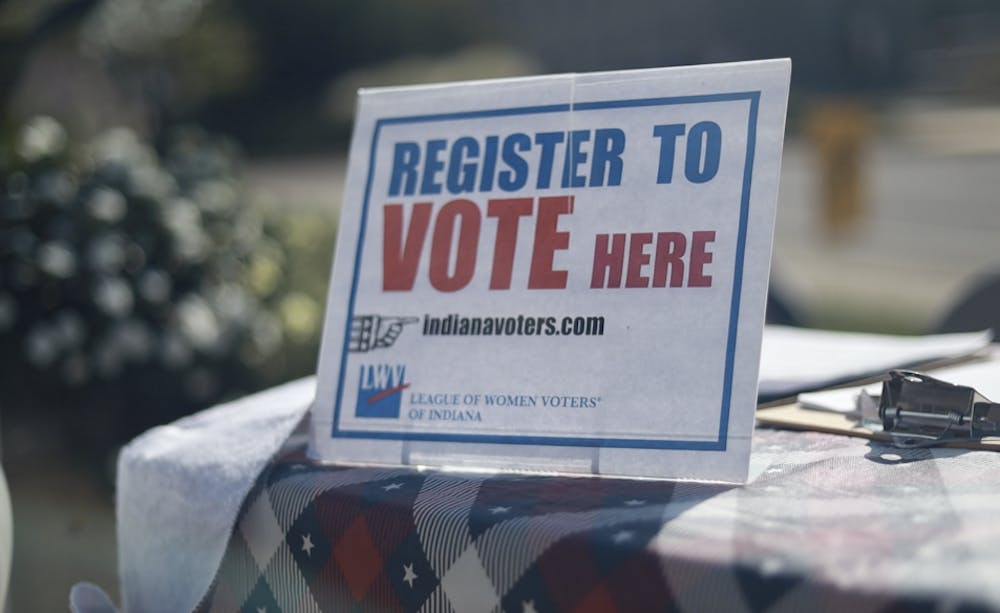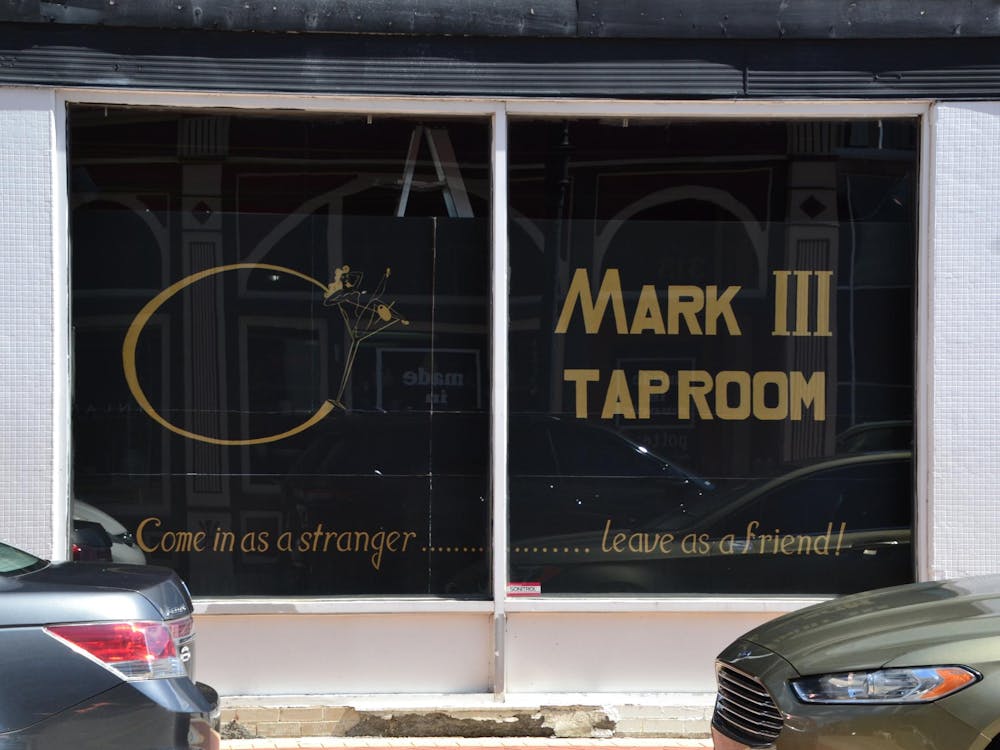It is almost time for the 2022 general election. While the period to register to vote is over, opportunities to vote early and send in absentee ballots are available for registered voters.
That said, voter turnout for Delaware County in 2020 was the lowest in the state of Indiana at 58 percent, according to IN.gov. For the last midterm election in 2018, Delaware County was also among the lowest in the state for voter turnout at 47 percent.
2016 and 2014? Same story.
Chad Kinsella, political science professor at Ball State University, said midterm elections always have lower turnout than presidential elections, but he predicts the 2022 election to have a lower turnout than 2018’s. It was a particularly high turnout for a midterm, despite being among the lowest percentages in Indiana overall.
Not only does Delaware County repeatedly have one of the lowest voter turnout percentages in Indiana, but Muncie, the most populated town in the county, is a college town. With Ball State at the epicenter, much of the county’s population consists of college students, most of whom are in the age demographic consistently the lowest in voter turnout, Kinsella said.
In general, Kinsella said age, income and education are three biggest predictors of voter turnout. He said voter turnout in Delaware County is normally higher outside city limits, whereas it is lower in areas like the south side of town or on Ball State’s campus.
“Young people typically have voted under the percentage of all the other age groups, it's like your voice ultimately is not being heard,” Kinsella said. “So, when people focus on policy, they have to consider who they truly represent, and that's going to be your older generations because that's who turns out to vote much more often. So, therefore, you get representation based on who they know turns out, and so, until younger people vote more often, they’ll get less focus [and] they'll receive less attention overall.”
Monet Lindstrand, third-year Ball State student, is the president of Ball State’s College Democrats. Leading up to the election, the College Democrats have had multiple candidates speak at meetings or events for them, including Rep. Sue Errington, running to retain her position as an Indiana State Representative. Additionally, the Indiana Democratic Party and the National Collegiate Athletic Association (NCAA) Democratic Party sent representatives to Ball State to speak to the College Democrats.
Lindstrand said the organization ran many events to push for voter registration, and now that the period to register to vote has passed, her organization is focused on getting those who registered to actually vote.
“18-25 [years old] is the smallest voting block by far, to the point where we can definitely shift entire races, if people get out and vote,” she said. “So that's a really big thing with these local elections, it can come down to like hundreds to thousands of votes, so I think a really big part about getting college students to vote is pointing out that there are laws being made that will directly impact your community and your state that you need to vote on.”
Lindstrand said the College Democrats have tried to make it known how to vote early and about other methods of voting not on election day because not everyone can vote on election day due to work and other issues that may arise.
“I think really laying out the steps and making it as easy as possible for people to go vote is going to be a really great way we can get the turnout to go up, but it really is sometimes a bit of an uphill battle in terms of figuring out ways to kind of get people there,” Lindstrand said. “I think really just pushing certain issues and being like, ‘You did the hard part, you registered to vote, now you should go and vote and make sure you're kind of getting your voice heard on issues that you're passionate about.’”

Although he agrees voting is important, Grant Wilson, fourth-year Ball State student and president of the Ball State College Republicans, has an alternative take on the subject.
“I'm not gonna say something like ‘Everyone needs to vote’ because I think it's a choice, but I enjoy it, [and] I think it's a good way to be part of the decision making process,” Wilson said. “I also think if you're going to choose not to vote, you have no room to complain about things if they don't go the way you want them to. I would much better understand somebody who voted for somebody, they lost, and they're like, ‘Well, things aren't so great right now’, [because] I can't say that you didn't try to do anything. If you didn't vote, there's nothing I can say, it's your own fault.”
Wilson said he doesn’t feel like there are a lot of people on campus who are very interested in politics, providing another reason as to why voter turnout may be low at Ball State. Kinsella agreed, sharing one of his habits as to how he gauges interest in each election.
“It's like if I go to the zoo or anywhere where there's a lot of cars, I always look at bumper stickers, and the more current bumper stickers there are, it seems to be more indicative that people are more interested in [politics and elections],” Kinsella said. “I don't see a whole lot on campus that would suggest people are really totally tuned in to this midterm. I don't think I've seen any bumper stickers for local people [or] bumper stickers for anybody running for U.S. Senate or any of that.”
Linda Hanson, co-president of the Indiana League of Women Voters, believes local races have a greater impact on citizen’s everyday lives than national races. Kinsella echoed her sentiment, saying in everyday life almost every time people encounter the government, it’s state or local, not federal.
Wilson agreed with Kinsella and Lindstrand about the importance of midterm elections, but not because he believes local positions hold more impact on citizen’s everyday lives.
“At the offset, midterms don't seem very important, but the midterms really set up who the next president is going to be working with, what kind of situation [they’re] walking into, as far as who's in control of Congress and the Senate,” Wilson said. “...So, by not voting in the midterms, you make it very ambiguous as to the kind of people who affect you on more of a ground level.”
Kinsella said Delaware County is a “purple county,” meaning each election is typically very close. For example, the 2016 presidential election had a majority of Republican victories, the 2018 midterm election had a majority of Democratic victories and the 2020 presidential election had a majority of Republican victories.
In Kinsella’s eyes, this not only shows the importance of voting in Delaware County, but it is also an indicator for the likely result of the 2022 general election.
“Given that the President is a Democrat, it's likely a favorable year for Republicans,” Kinsella said. “Regardless of how Delaware County votes, we're talking usually a pretty close vote. So getting a certain group of people increasing by a couple of vantage points here could change the whole dynamic of the count.”
Kinsella said he believes a lot of the focus is on Congress during these midterm elections, however, he said there are many important state legislator and local races in Delaware County. He mentioned how 2023 is a budget year, and the new legislation will create that budget, adding onto why this election is so important in particular.
For the College Republicans, issues such as abortion rights, inflation, gas prices and the general economy are what Wilson feels should be and will be addressed in the upcoming election. For the College Democrats, they also view the issue of abortion rights , as well as things like gun control, healthcare and college debt as things that should be addressed.
For more information about voting locations, ballot information and more, visit Delaware County’s website.
Contact Kyle Smedley with comments via email at kyle.smedley@bsu.edu or on Twitter @smedley1932.





